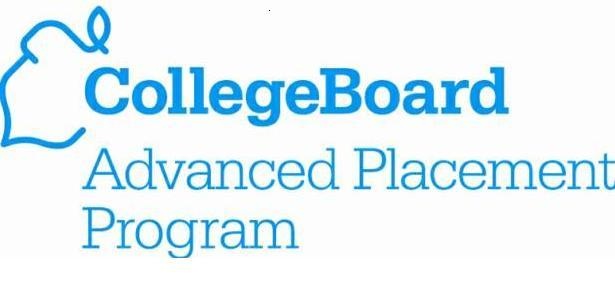Top 10 Hardest AP Classes
AP classes can be a great way to prep for college, but here’s why some AP classes are harder than others.
https://www.google.com/search?q=advanced+placement&hl=en&tbm=isch&source=lnt&tbs=sur:fc&sa=X&ved=0ahUKEwi3isW23_XhAhUDYawKHT2mDUEQpwUIIQ&biw=1366&bih=625&dpr=1&safe=active&ssui=on#imgrc=AvoF7PzaTp60UM:
The college board advanced placement program is a helpful way to earn college credit.
April 29, 2019
At George Ranch High School, a variety of AP (Advanced Placement) classes are offered. As a person who has been taking AP classes throughout all four years of high school, it is clear which classes are the better ones to take, but for those on the fence, it can be harder to tell.
If we were to order the AP classes in from “hardest” to “easiest” according to the College Board pass rates for each test, the list would be as follows:
- Macroeconomics —- 16.2% make at least a 3.
- Physics —- 19.6% make at least a 3.
- Calculus BC —- 20.7% Make at least a 3.
- Calculus AB —- 21% make at least a 3.
- Human Geography —- 21.5% make at least a 3.
- U.S History —- 22.7% make at least a 3.
- Statistics —- 24.9% make at least a 3.
- Chemistry —- 24.9% make at least a 3.
- U.S. Government and Politics —- 26.4% make at least a 3.
- Biology —- 32.8% make at least a 3.
However, how hard the test may be to pass doesn’t determine how hard the class will be. A variety of things go into what makes an AP class hard, including the teacher, the homework assignment, tests, quizzes, and overall material.
A good AP class should not feel overwhelming or confusing. The teacher should be able to teach the material effectively while also not making it feel too difficult for the student. This means that the teacher should make sure the students understand each part of the material enough to complete assignments on their own.
The homework assignments can vary in difficulty depending on the class and material, but the amount of homework assignments is what separates a good AP class from a poor one. A poor AP class will have multiple homework assignments to complete with high levels of difficulty and minimal instruction.
Tests and quizzes are a necessary part of any class, AP or not. I find that the better AP classes don’t put a lot of pressure of quizzes– it’s a learning opportunity. Quizzes are there to help you see what you get wrong and what you need to improve on. Some teachers don’t even take the quizzes for a grade, they just want you to learn from them. The tests, on the other hand, have a lot of pressure placed upon them as they serve as practices for the AP exam. Good AP classes will make the tests in class harder than the AP exam. I know how that sounds, and although it may be a struggle in the beginning, by the time the AP test comes around you will feel so prepared.
Also, the overall material is a factor that goes into whether an AP class could be considered hard. For example, I am not very good at math and much better at the AP English courses. However, I know plenty of people who have taken a variety of AP math and science courses but have stuck to academic English courses. The difficulty of an AP class depends on YOU. You have to know your strengths and weaknesses and play to them. You also have to be willing to put in the extra effort; the more you put into an AP course the more you will get out of it.
If I were to order the same AP courses from above based on experiences, strengths, and student feedback the list would be as follows:
- Calculus BC
“Calculus BC is one of the most challenging classes I have ever taken but Dr. Hren makes it as easy as pi. I would definitely recommend taking the class with Dr. Hren” – Ruhiya Patilia, 12
- Physics
“I really struggled in physics. The concepts were really hard and by the time I understood them we were already moving on.” – Senior at George Ranch
- Calculus AB
“I love it! It’s easy and Mr. Throop makes the class fun.” – Alex Desemeroux, 12
- Biology
“It’s not as bad as everyone makes it sound. It’s not easy, but if you pay attention and you care about it, it’ll be fine.” – Senior at George Ranch
- Human Geography
“If you want to see the struggle of an AP Class, then take it.” – Allicenne Bonin, 12
- Macroeconomics
“Macroeconomics has been my favorite class this year. It involves math and concepts. Ms. Harvey made it really fun and I would recommend others to take it as well.” – Naomi Milanco, 12
- U.S Government and Politics
“Although AP Government is not necessarily an easy class, learning about our government, especially as we begin to form our political views and participate in ‘elections’.” – Sarah Reynolds, 11
- Statistics
“I would definitely recommend AP Statistics. It can sometimes be rigorous but the material is essential to most majors in college and makes it totally worth it.” – Leo Avellaneda, 12
- Chemistry
“If you love Chemistry, if you love science, it’s not that difficult because then you’re learning about stuff you’re actually passionate about.” – Teagin Ortiz, 12
- U.S History
“APUSH is all about knowing what you signed up for. There’s no doubt that it’s a ton of work and that it’s overall a huge amount of information to take in. However, so long as you understand the expectation and commit to the workload, it is by all means survivable. With a great teacher like Mrs. Wilkening, my APUSH experience was one I can look back on with no regrets.” – Claire Smith, 12
Whichever class you chose to take, if any, the most important thing to remember is that you have to do a lot of studying in your own time. For the majority of the classes, if not all of them, the teachers don’t do a lot of reviewing before tests. To be prepared for a test you have to be sure to study the material beforehand — especially when it comes to the AP exam. Teachers will typically give the last few weeks before the AP exams to study for the test in class, but if you expect to make a 3 or above, you need to have a good understanding of the material; the best way to do this, is to take some time outside of school to study on your own or in groups.




